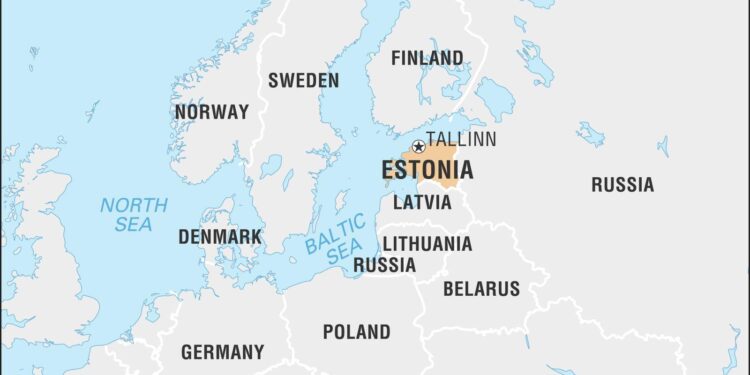Estonia and Finland have announced a landmark agreement to share health data aimed at advancing cancer research, marking a significant step forward in cross-border collaboration within the Nordic region. This joint initiative leverages cutting-edge healthcare IT infrastructure to facilitate secure and efficient data exchange, with the goal of accelerating breakthroughs in cancer diagnosis, treatment, and prevention. The partnership underscores the growing importance of digital innovation in healthcare and highlights how international cooperation can enhance research outcomes for complex diseases like cancer.
Estonia and Finland Join Forces to Accelerate Cancer Research Through Data Sharing
In a landmark move, Estonia and Finland have initiated a collaborative framework designed to break down data silos and enhance cancer research through shared patient data. Leveraging advanced healthcare IT infrastructure, both countries aim to create a secure and interoperable environment that fosters faster discovery of cancer markers and treatment responses. This partnership emphasizes the integration of genomic, clinical, and lifestyle data to develop personalized cancer therapies, advance early detection techniques, and streamline clinical trials.
Key benefits of this bilateral data-sharing initiative include:
- Increased patient cohorts for more robust statistical analysis
- Enhanced cross-border collaboration among researchers and healthcare providers
- Accelerated identification of novel biomarkers and therapeutic targets
| Focus Area | Estonia | Finland |
|---|---|---|
| Data Protection | GDPR-compliant eHealth records | National healthcare data hubs |
| Research Strength | Population genomics | Oncology clinical trials |
| Technology Platforms | e-Health X-Road platform | Kanta services integration |
Enhancing Cross-Border Collaboration to Improve Patient Outcomes and Treatment Strategies
Estonia and Finland have embarked on a groundbreaking initiative to share cancer-related data, aiming to accelerate research and enhance treatment efficacy through unprecedented cross-border collaboration. This strategic partnership taps into both countries’ robust digital healthcare ecosystems, enabling researchers and clinicians to access a wider, more diverse dataset. The exchange of anonymized patient information is expected to unlock new insights into cancer patterns, treatment responses, and long-term outcomes. By leveraging advanced data analytics and AI-driven tools, healthcare professionals can now refine personalized treatment protocols, improving survival rates and quality of life for patients across the region.
Key elements driving this collaboration include:
- Unified data standards to ensure seamless interoperability between Estonian and Finnish health registries
- Enhanced cybersecurity measures to safeguard sensitive patient information
- Joint research projects focused on rare cancer types and innovative therapies
- Real-time data sharing facilitating timely clinical decision-making
Early outcomes from pilot studies have demonstrated significant progress in identifying biomarkers and optimizing treatment regimens. This partnership sets a precedent for future multinational cooperation, underscoring the critical role of data exchange in transforming oncology care.
| Aspect | Estonia | Finland |
|---|---|---|
| Population Covered | 1.3 million | 5.5 million |
| Type of Data Shared | Genomic, Clinical | Clinical, Imaging |
| Data Infrastructure | Nationwide EHR | Regional Health Systems |
| Project Start Date | January 2024 | January 2024 |
Recommendations for Strengthening Data Privacy and Interoperability in Healthcare Partnerships
To ensure robust data privacy within transnational healthcare collaborations, stakeholders must implement comprehensive data encryption protocols and adopt strict access controls based on user roles. Establishing unified consent frameworks allows patients to retain autonomy over their data while streamlining cross-border sharing for research purposes. Furthermore, periodic audits and transparent reporting mechanisms can build public trust by demonstrating accountability and mitigating risks linked to data breaches or unauthorized use.
Interoperability hinges on the adoption of standardized data formats and communication protocols to enable seamless integration between diverse national health IT systems. Key recommendations include:
- Aligning with international standards such as HL7 FHIR and GDPR compliance
- Developing joint governance structures to oversee data exchange policies
- Investing in scalable APIs facilitating real-time data interoperability
- Creating shared metadata repositories to harmonize cancer research datasets
| Recommendation | Benefit | Key Application |
|---|---|---|
| Data Encryption & Consent Management | Enhanced patient data security | Cross-border data sharing |
| Standardized Data Protocols (HL7 FHIR) | Improved system compatibility | Seamless integration of health records |
| Joint Governance Frameworks | Consistent compliance oversight | Unified policy enforcement |
| Scalable APIs & Metadata Repositories | Accelerated research collaboration | Real-time data access for studies |
Future Outlook
As Estonia and Finland move forward with their groundbreaking agreement to share data for cancer research, the collaboration stands to accelerate advancements in early detection, treatment, and patient outcomes. This cross-border initiative not only exemplifies the growing importance of health data interoperability in Europe but also sets a precedent for future international partnerships aimed at combating complex diseases. Stakeholders will be watching closely as this data-sharing framework unfolds, hopeful that it will pave the way for more personalized and effective cancer therapies.
















